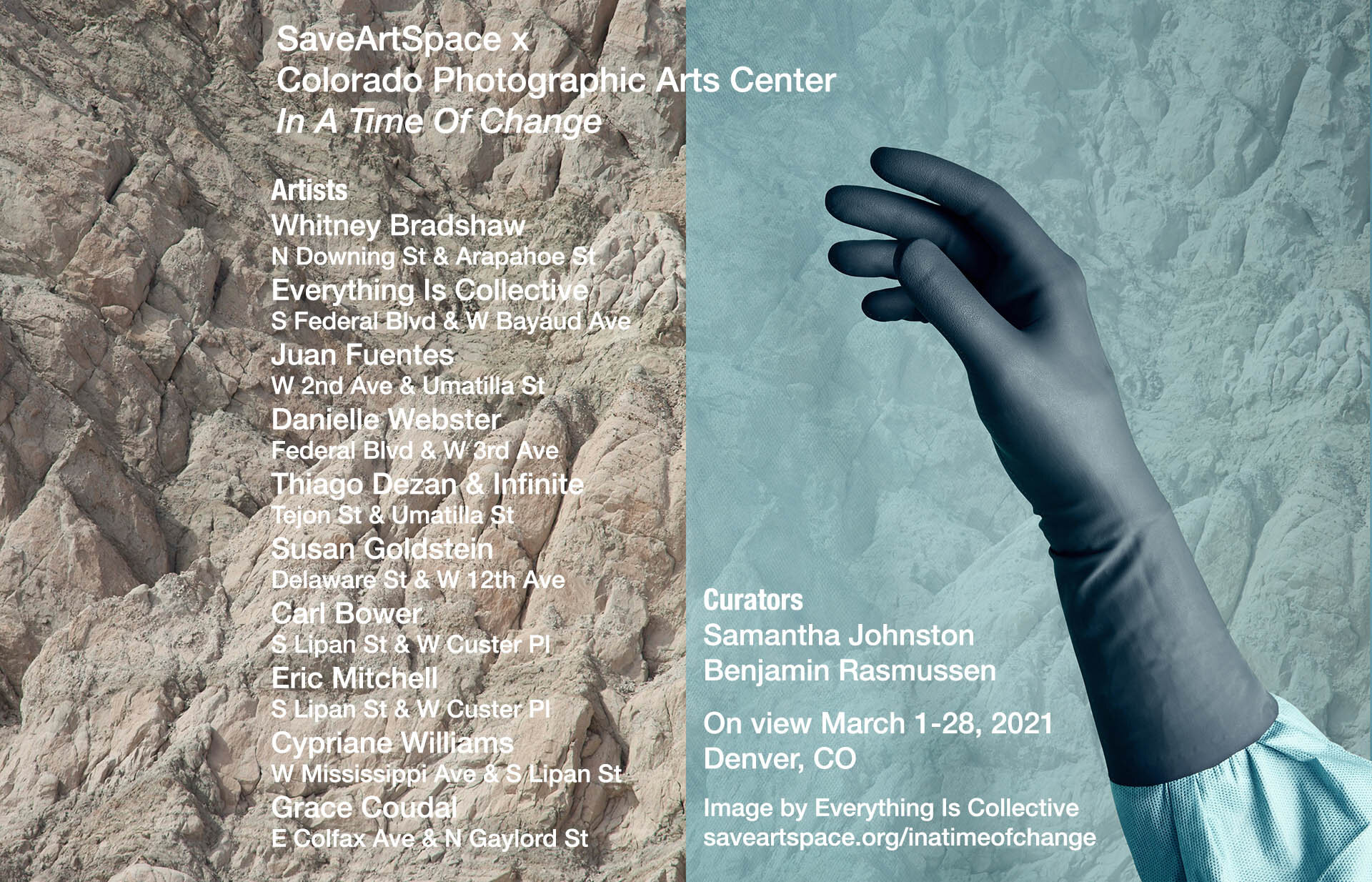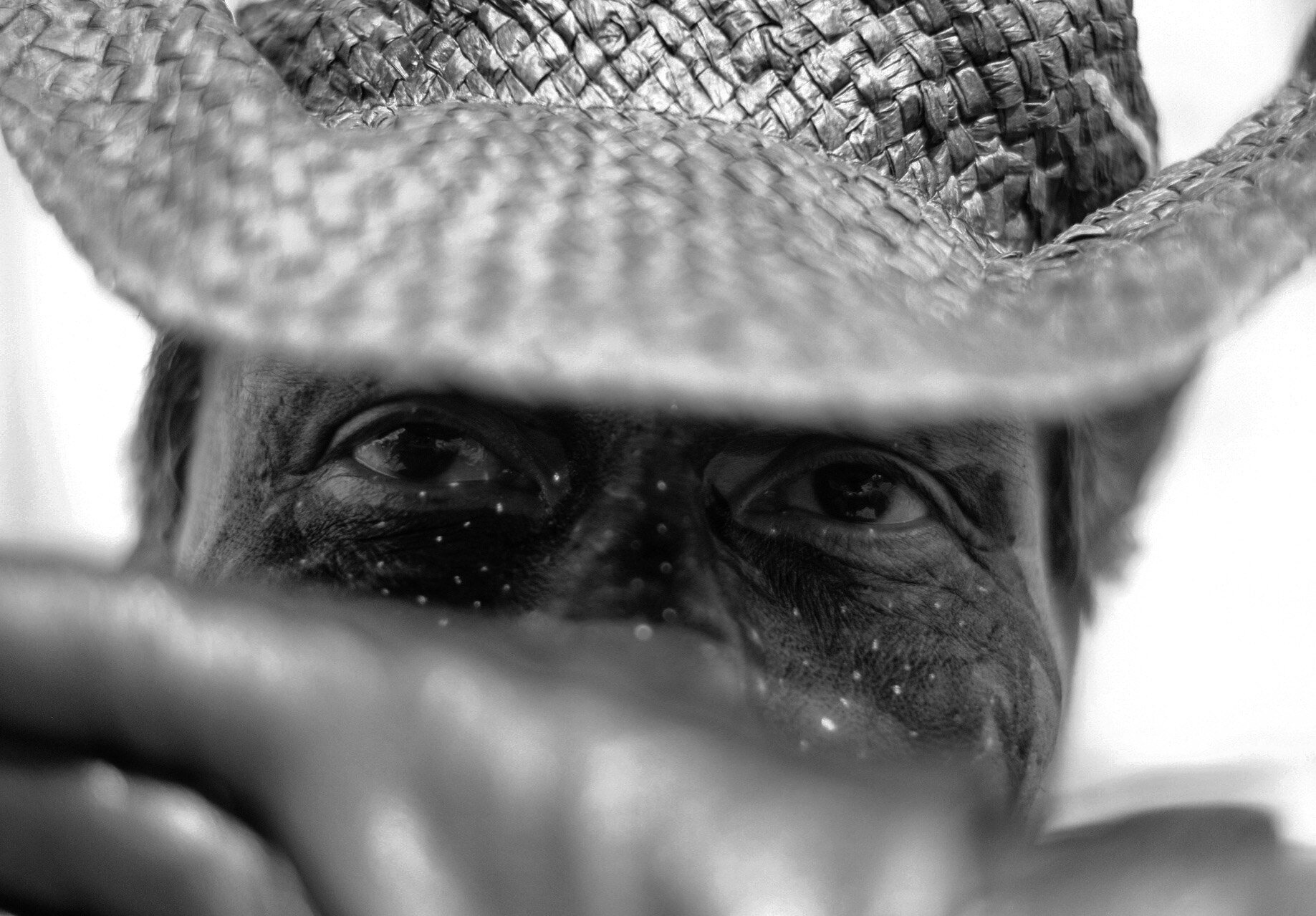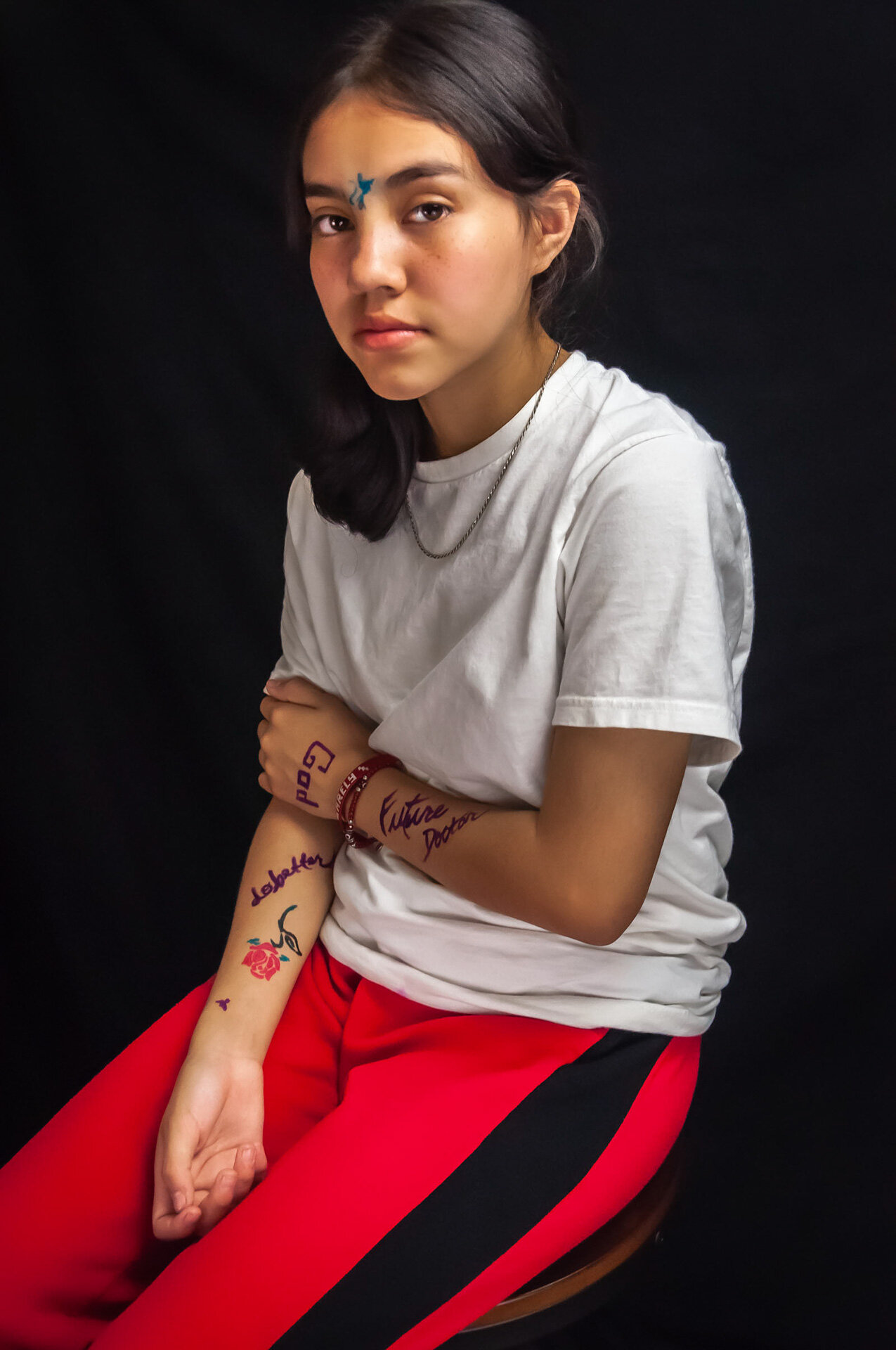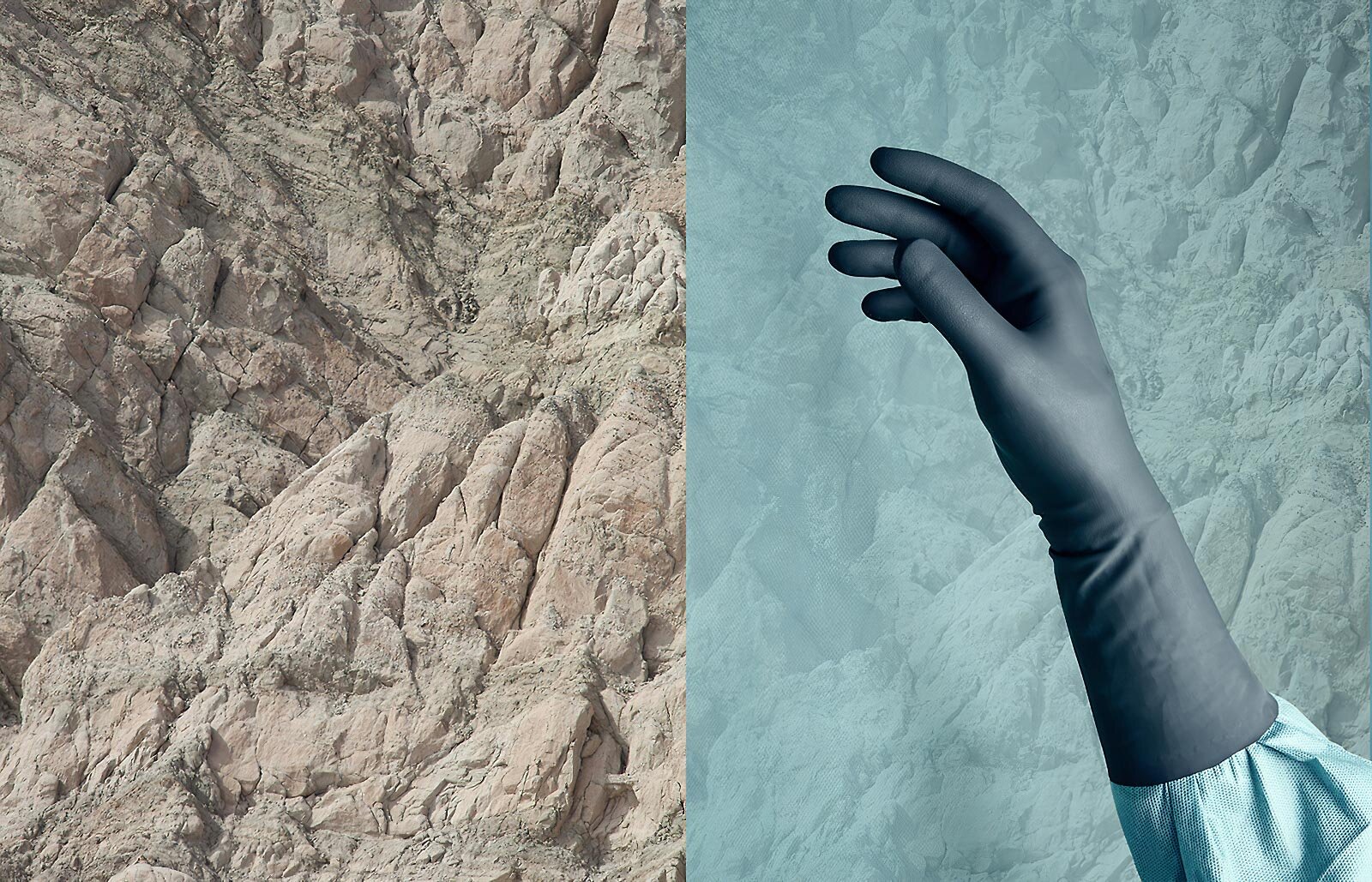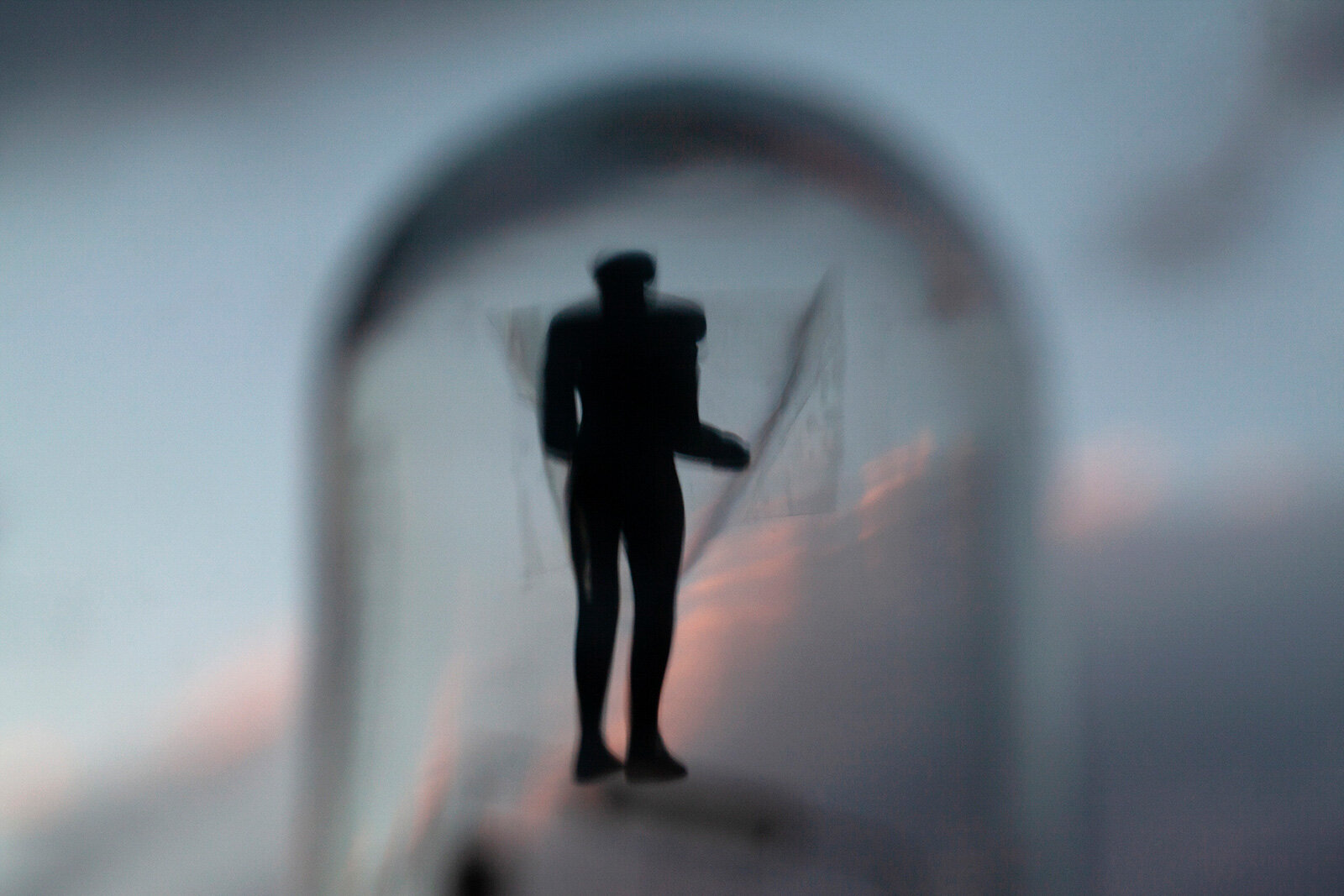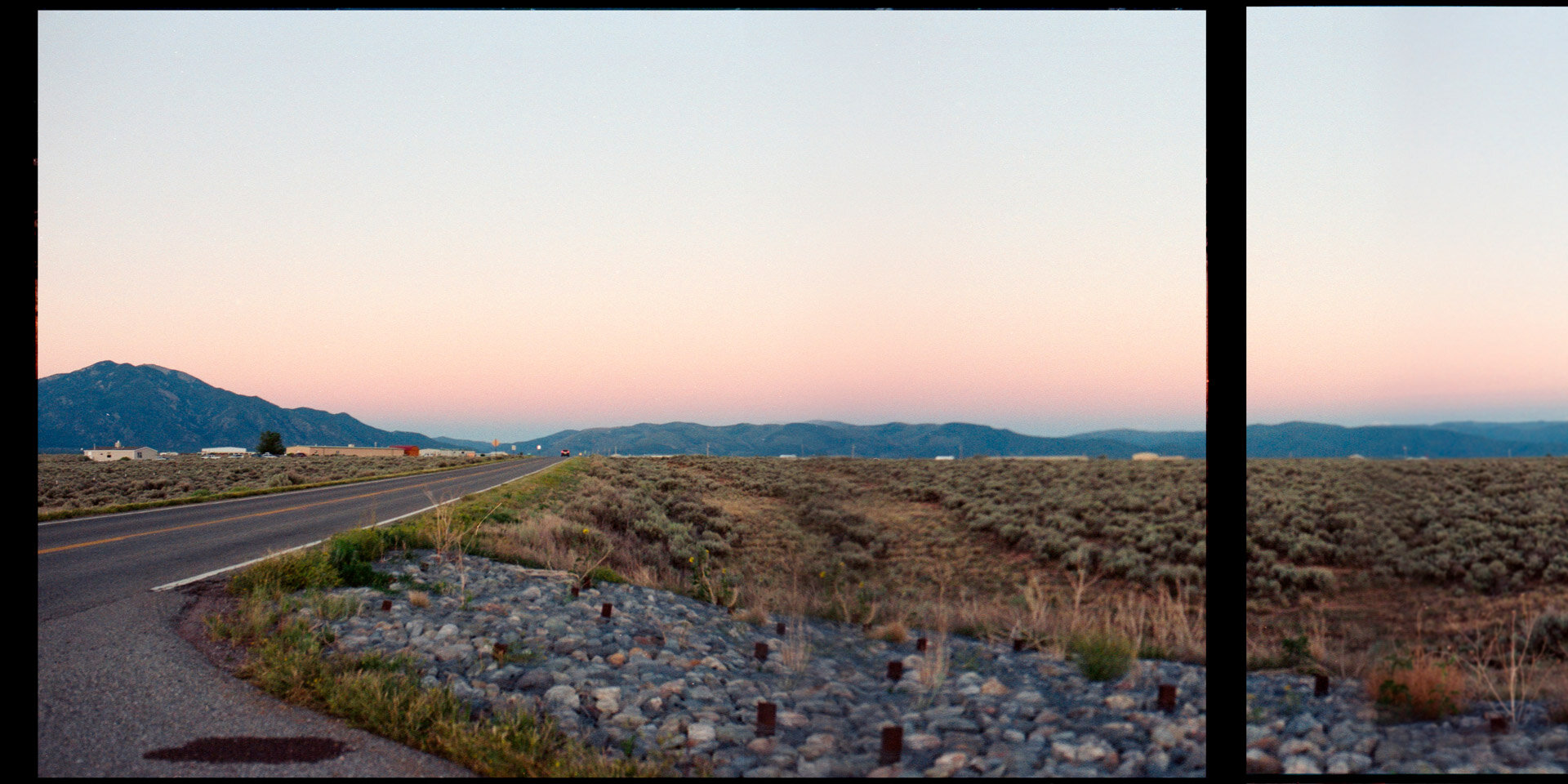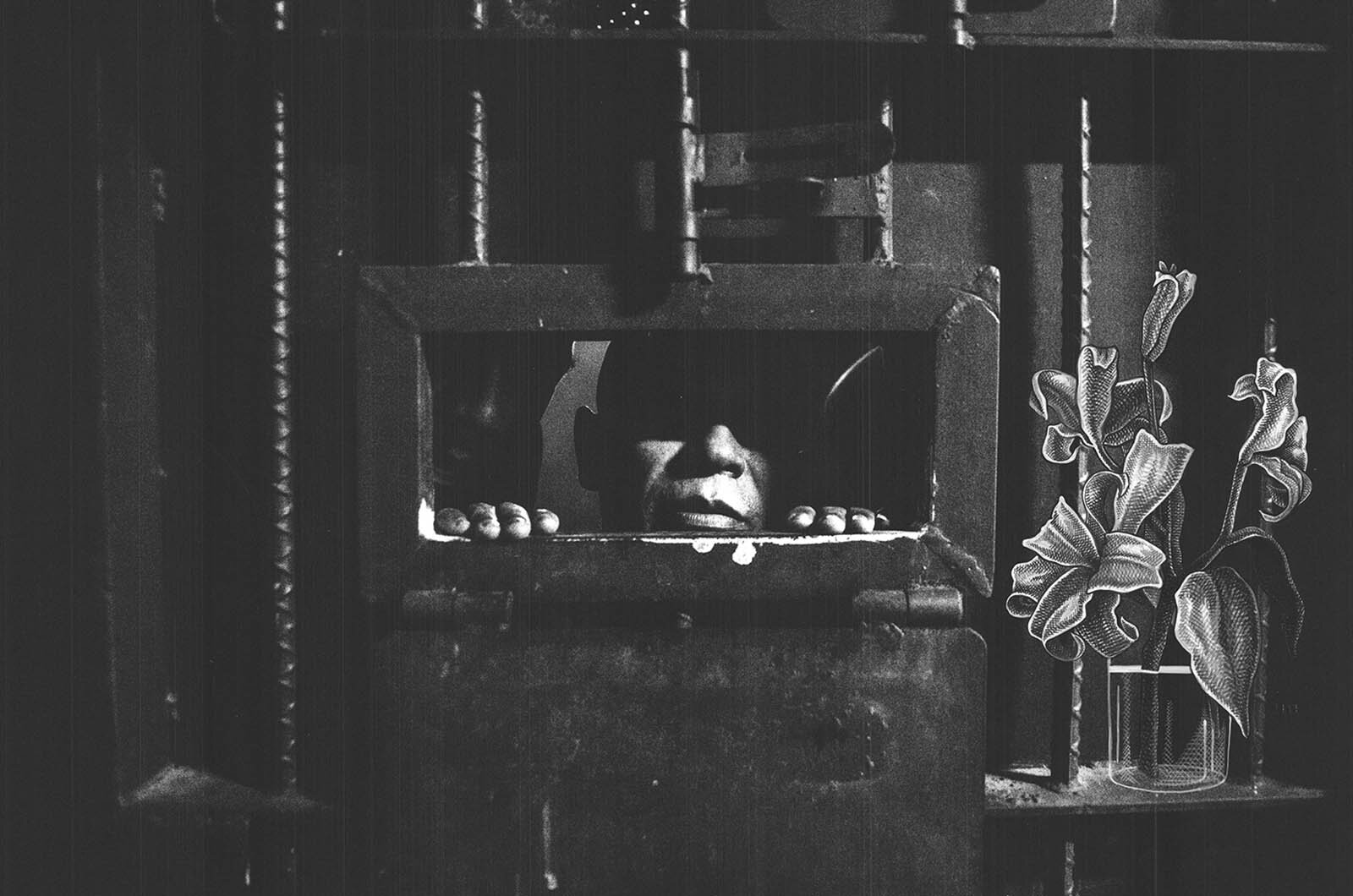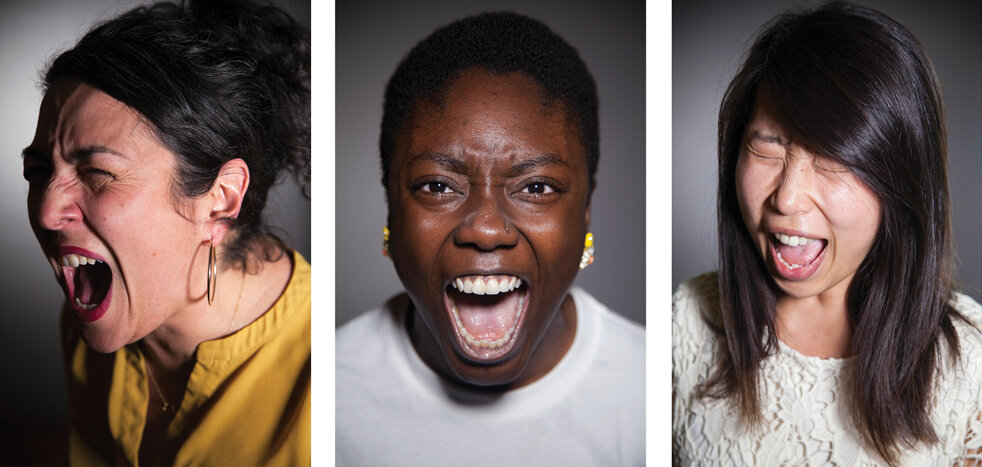SaveArtSpace & Colorado Photographic Arts Center are pleased to present In A Time Of Change, a public art exhibition for the Month of Photography Denver, a festival of fine art photography. The selected artists are Whitney Bradshaw, Everything Is Collective, Juan Fuentes, Danielle Webster, Thiago Dezan & Infinite, Susan Goldstein, Carl Bower, Eric Mitchell, Cypriane Williams, and Grace Coudal. Curated by Samantha Johnston and Benjamin Rasmussen.
As we move through a global pandemic, public art continues to allow us to identify and address our struggle with the hope of finding new, positive paths forward. While we social distance, we are still able to come together through the act of art making and imbue spaces with our creativity.
During the week of March 1, 2021, SaveArtSpace will launch public art installations for each selected work on billboard ad spaces in Denver. The public art will be on view for at least one month.
Participating Organizations
Artwork by Olive Moya
Founded in 2015, SaveArtSpace is a non-profit organization that works to create an urban gallery experience, launching exhibitions that address intersectional themes and foster a progressive message of social change. By placing culture over commercialism, SaveArtSpace aims to empower artists from all walks of life and inspire a new generation of young creatives and activists.
Colorado Photographic Arts Center (CPAC) a nonprofit organization dedicated to fostering the understanding and appreciation of excellent photography in all forms and concepts through exhibitions, education, and community outreach.
The Month of Photography Festival is presented by the Colorado Photographic Arts Center (CPAC), CPAC is the headquarters of the festival and is located at 1070 Bannock St. in Denver’s Golden Triangle Creative District.
Curators
Samantha Johnston has been the Executive Director and Curator at the Colorado Photographic Arts Center since 2015. She holds a certificate in Arts Development and Program Management from the University of Denver, an MFA from Lesley University College of Art & Design, and a BFA from Alfred University. Prior to joining CPAC, she taught photography and visual arts for 12 years at high schools in Boston and Denver.
She has curated exhibitions with contemporary artists such as Jess T. Dugan, Daniel Coburn, Barbara Ciurej & Lindsay Lochman, and Zora Murff. Samantha has served as a reviewer at Houston FotoFest, Review Santa Fe, PhotoPlus New York, Medium, Month of Photography (MoP), and Filter. She has juried several exhibitions including Critical Mass and The Fence.
She is a longtime member of the Society for Photographic Education, and served as Treasurer of the Southwest region from 2013-2016 and Co-Chair of SPE’s 2013 Southwest regional conference in Denver. She was named one of Colorado’s Top 100 Creatives 3.0 by Westword and has been featured in Lenscratch.
You can connect with Samantha on Instagram at @johnston_se.
Benjamin Rasmussen is a photographer and curator based in Denver, Colorado. In 2019, Rasmussen, along with Nish Nalbandian, started Pattern, a gallery, photobook library and community space dedicated to the documentary arts.
In 2014, Benjamin was chosen as one of PDN’s 30 New and Emerging Photographers to Watch. His work has been selected for the American Photography Annuals, shortlisted for the Leica Oskar Barnac Award, and awarded in the 2010 POYi awards. He works with clients including Time, Vanity Fair, Vogue and National Geographic.
You can connect with Benjamin on Instagram @benjaminras.
Selected Artists
Whitney Bradshaw From the series Outcry, Cecily, Adia, Jin, 2018 Archival Inkjet Print 22x17inches
Location: N Downing St & Arapahoe St, Denver, CO
Whitney Bradshaw is an artist, activist, educator, and former social worker and curator whose practice seeks to empower her subjects while challenging the social systems that marginalize and oppress them. She is currently the chair of the visual arts conservatory at ChiArts (the Chicago High School for the Arts). Her photographs have been widely exhibited including solo shows at the DePaul Art Museum, the Tarble Arts Center (EIU), the Wave Pool Gallery (Cincinnati), the Lubeznik Center for the Arts, among others. Her work can be found in the permanent collection at the Museum of Contemporary Photography, the DePaul Art Museum, Columbia College Chicago, Northwestern School of Law, and the Sara M. and Michelle Vance Waddell collection. Her photographs have been published or reviewed in the New York Times, the Chicago Tribune, the LA Times, Time Out New York, Vogue, Float Photo Magazine, and the Esthetic Lens Magazine to name a few. WTTW Chicago Tonight ran a piece on Bradshaw’s social practice project, Outcry, in 2018. More of her work can be found on her website whitneybradshaw.com.
In response to the rise of a predator to the highest office in the land, the long history of silencing of womxn and girls, and in an effort to continue to propel the #metoo movement forward, I make portraits of womxn screaming. Through this social practice project, I provide womxn space where they can practice speaking up and out for themselves. I also provide a space for them to be heard, supported, encouraged, and celebrated.
I invite groups of womxn who don't know one another to my studio for a gathering, effectively expanding our community while providing support for one another as we bravely let out feelings that have been silenced or dismissed in our culture. During each session, we talk about how our voices can save us and share self-defense strategies. The sessions are therapeutic, powerful, and fun! It's important to me that a very diverse group of womxn is represented in the project. I do this, not only, to give voice to as many womxn as possible but also to ensure that when a woman views the project she can see someone like her in it. Likewise, when the larger audience views it they can see their mothers, daughters, sisters, nieces, etc. I hope the work empowers womxn who take part in Outcry as well as those who view it to speak up for themselves whenever they need to. Most importantly, I hope the work encourages all viewers to listen to, believe, support, care for, and, above all, respect womxn and girls.
I began this project on the night of the Women's March 2018. Since then I have photographed over 375 womxn letting it all out! When seen together these intimate representations of our individual power and expression become a monumental act of collective resistance.
Connect with Whitney on Instagram at @thewhitneybradshaw.
Everything Is Collective No Analog State (Reaching Out), 2018.
Location: S Federal Blvd & W Bayaud Ave, Denver, CO
Everything Is Collective is an experimental art collective that addresses issues concerning photography, subjectivity, power, and aesthetics. The group works collaboratively and across mediums and disciplines, and all works produced by the group are attributed to the group as a whole, not the individual members. Since 2013 the group has worked together on numerous exhibitions, publications, and web-based projects. The collective has exhibited their work nationally and internationally including recent exhibitions at the Aperture Foundation in New York, Royal Nonesuch Gallery in Oakland, Filter Space in Chicago, and the Urban Arts Space at Ohio State University. The collective also runs a book press that publishes works by the collective as well as commissioned experimental works by independent artists. Recent publications from Everything Is Collective Press have been featured and reviewed widely in print and on the web, and have been acquired by the collections of Joan Flasch Artists' Book Collection at SAIC and the MoMA Library in New York, among others.
This body of work, which was produced collaboratively in 2018 Everything Is Collective, addresses the complexity of the human relationship with the “natural” world in the era of climate change, epidemics, and political upheaval. The project is made up of original photographs, appropriated images, computer generated imagery, and collage, all of which work together to form a kind of schizophrenic narrative told through images. The title of the project-- No Analog State, is a term borrowed from climate science that describes the current condition of the earth's climate as one without precedent, and is meant to deflect the climate change deniers argument that earth's temperature and atmospheric makeup have always fluctuated and are part of a natural cycle of warming and cooling. What we are seeing now is something that has never been seen before. Like many works of science fiction, the book's story has become more true in the last two years than we would have ever wanted it to.
Connect with Everything Is Collective on Instagram at @everythingiscollective.
Juan Fuentes Untitled
Location: W 2nd Ave & Umatilla St, Denver, CO
Juan Fuentes is a documentary photographer born in Chihuahua, México, who grew up in Denver’s Northside neighborhood. His kinship to the barrio is evident within his photography, telling the intimate stories of everyday life of immigrants and Chicanos. As a chronicler of life in Denver, when he isn’t documenting, he collects and curates the content for @oldenver’s Instagram account - a digital archive that highlights the people, culture and spaces he feels are being forgotten in the current narrative of the city.
Juan’s photographs are a poetic approach to seeing and capturing contemporary America as a Mexican immigrant. For him, it is important to photograph and document because it creates a record that affirms reality, experience and moments in history. It is also a vehicle for storytelling, which allows him to take authorship of his own narrative. His skill is to freeze unexpected or crucial moments that mirror modern life. They can be simple - or they can have layers of meaning.
Connect with Juan on Instagram at @thewritejuan.
Danielle Webster Past as Prologue: A Photographic Exploration of Retold Black History Antebellum Ancestors
Location: Federal Blvd & W 3rd Ave, Denver, CO
Danielle Webster is a photographer from Dallas, Texas and is currently based in Denver, Colorado. Inspired by the feeling of Impressionist painters; her artistic style is similarly influenced by the intensity of color, and meshes historical nostalgia with modern subject matter to express varying narratives. She believes in capturing raw moments, and that things don’t need to be perfect to be beautiful or have value. Danielle often works to highlight issues of social justice, conveying important stories, and prioritises inclusivity and realness in her subjects.
Lucille Wenegieme is a cultural commenter, and communications strategist from Colorado. She believes deeply that there is nothing new under the sun, and that no two topics are unrelated. Being the child of Nigerian immigrants, she has always balanced a dual perspective through which she views American cultural life: as both an outsider with deep ties to America’s international impact, and as an insider shaped deeply by the nation’s ideals and realities. An avid student of pop culture, Wenegieme consumes, analyzes and reframes current events to present salient connections from the past 70 years of American life to today. Her core focuses are fashion, civil rights, black diaspora, medical science, celebrity impact, social media, film and television.
The selected image “Antebellum Ancestors”, from the series “Past as Prologue” was conceptualized by Lucille Wenegieme, directed & photographed by Danielle Webster. Collaboratively, this vision came to life in a former plantation home in Macon, Georgia to bring light to the impact of Black culture in history, and broaden historical narratives that inspire and empower using modern day technology and media.
The erasure of black people, black culture, and the totality of blackness is a hallmark of American life. Though black Africans have been on American soil for over 400 years, their impact, culture and voice continue to be omitted from the cultural mythos of American history. In an effort to sanctify its forefathers and minimize its sustained malignance, American historical storytelling spends only a few chapters on the stories of black impact in this country. Besides the obvious whitewash of historic realism, you hardly see black Americans in roles of power and ownership, even as their impact on agriculture, music and more continue to fuel every facet of American life. It is only today and in most recent decades that we have been able to truly see an increase in the acknowledgement of black cultural ownership, agency — and power.
These photos reclaim black history and stand as a modern time capsule in which to recover a lost history. We explore cultural and historic themes by meshing together traditional components with the modernity of today’s tools. What may have not been accessible in the past can be brought to life and reimagined today. Through modern media we can create a new version of history where the visual representation of black people in these spaces is meant to uplift instead of strip them from the places they themselves built.
Danielle Webster: “As a director, I challenge the viewer to think beyond their expectations, and consider why the subject matter seems different.”
Lucille Wenegieme:
“It is a tricky thing: to rob and rebrand, to claim with the intent to smother.
It is not by accident that you do not see black people in ownership of the things that they built.
It is not by accident that you do not see black people in period pieces.
It is not by accident that you do not see black women in plantation homes.
But now you have.
And now you cannot unsee a version of history where blackness has ownership of the house that blackness built.”
This series is a way to reshape the way we view the past and to create waves in the minds of our generation as we rewrite elements of black history through the modern lens.
Connect with Danielle on Instagram at @electriclady_shoots.
Thiago Dezan & Infinite One Day You Will Be Out Of Jail
Location: Tejon St & Umatilla St, Denver, CO
Thiago Dezan is a documentary filmmaker and photographer. At 16, he produced his first video in Cuiaba, his hometown. The desire to tell stories made him spend the next 7 years traveling throughout Brazil and Latin America developing projects to empower collectives through multimedia platforms. In 2013 was one of the founders of NINJA, an independent network that carried out the coverage of historical protests of June 2013 and contrary to the World Cup in 2014. From this, Dezan started to work as a freelancer and produced photos and videos for channels like The Washington Post, AJ +, The New York Times, The Intercept. Now he works as a filmmaker at the Inter-American Commission on Human Rights.
Infinite was born in the '90s, in a little town in the middle of the Dolomites, in Italy.
His artistic practice is various and articulate and is influenced by his background in the Graffiti scene and the Squatting movement of North Italy.
The choice of the name is related to the fact that the artist intended to be anonymous.
His work focuses on the critique of geopolitics and contemporary society.
He is currently based between New York City and Milan, where he lives and works.
Infinite is also the co-founder of Subseri La Stamperia Sotteranea, a socially engaged independent print house based in Milan, IT.
One Day You Will Be Out Of Jail is an extract of a bigger project made by the photographer Thiago Dezan and the artist Infinite.
Is already pass one year since the beginning of their collaboration. The two are working on a complex project that pushes both to find a way to interact with each other through their different artistic practices.
Using different but relate language, they are generating a body of work composed of different pieces. The brutality of the reality portrayed by Thiago is facing the contrast with the element that Infinite uses to paint with acrylic on his photos once printed.
The interaction of these works generates an ambiguous and mysterious environment in with the audience finds space to ask themselves, what's the limit between reality and dreams.
As mass incarceration cures the needs of a society thirsty for punishment and revenge, inmates all over the world keep being stripped of their dignity and having their right to change stolen. One Day You Will Be Out Of Jail is a piece that wants to help bring a little bit of hope for incarcerated people, who can only look for tomorrow through the bars of their cages. But it is also a warning for society: one day, all these people will be out of jail; who do you want them to be?
Connect with Infinite & Thiago Dezan on Instagram at @infynite_ & @thiagodezan.
Susan Goldstein COVID-19 Inside Out Series: Sunset - July 7, 2020
Location: Delaware St & W 12th Ave, Denver, CO
Susan Goldstein was born in the middle of the last century in Indianapolis, Indiana and moved to Boulder, CO to attend college in 1968. After moving to Denver in 1978 she began working for Denver’s weekly newspaper, Westword, eventually becoming the staff photographer. An admitted “late bloomer” at 49, she pivoted from the world of journalism to fine art.
Goldstein has been described by Denver’s art critics as a multifaceted artist who in addition to creating many photographic and photo-based bodies of work, has successfully made sculpture from antique office supplies, addressed a variety of political issues using collage and installation and explored mixing materials to make new imagery. The most recent collage work, Bending Time, unites her love of collecting, photography and collage. The pandemic created a new opportunity to work with existing materials in her studio and led to a new body of lens-based photographs, The COVID-19 Inside Out Series.
The following is taken from curator Simon Zalkind’s essay written for Goldstein’s 2006 Retrospective Exhibit, Coming to America, at the Singer Gallery in Denver, Colorado. “Goldstein is a restless forager – a connoisseur of fragments, emblems, numinous talismans and enchanted bric-a-brac. Her studio brims with charged objects, artifacts and souvenirs that are displayed instinctively and innocently, restoring the objects of the past to the pleasure of the present. In the series of collages called Intersections, her indebtedness to the surrealist enterprise – to chance, serendipity, intuition – is evident enough. The smaller the world can be condensed, the more safely it can contain the dynamism and danger of daydreams and reverie.”
Goldstein’s photographic work is included in numerous collections including the Museum of Fine Arts, Houston, the Museum of Modern Art, Joaquim Paiva Collection, Rio De Janeiro, Brazil, Luz Astral Foundation, Buenos Aires, Argentina, The Crawford Hotel, Union Station, Denver, CO. and the Colorado Photographic Arts Center. Her work has been exhibited extensively including at the New Mexico Museum of Art, the Griffin Museum of Photography’s Stoneham Gallery. Colorado Photographic Art Center, and Colorado College’s Idea Space.
I am a former newspaper photographer and in the beginning of the pandemic in March of 2020, resisting the urge to photograph the empty streets in Colorado was difficult. After the tragic death of George Floyd, May 25, 2020, emerging from sheltering in place to participate in and photograph the Black Lives Matter protests was a health risk I was unwilling to take.
I have been documenting my experience sheltering in place by using my windows to delineate the interior from the exterior. By placing materials from my collections on the inside and using the exterior landscape as a backdrop, I create new images that sometimes relate directly to the pandemic and sometimes respond to the changing physical landscape outside my home as well as the emotional landscape inside my head.
Adjusting to the profound changes in my life related to the pandemic and being totally alone for days, weeks and now 10 and a half months has been a combination of managing fear, loneliness, anger, sadness, and sometimes finding a more peaceful coexistence with my new reality. I’ve learned to both endure and embrace the situation. Out of this personal transformation came the work in this series.
Time has blurred as we remain suspended between the lives we were once able to live and the more carefully orchestrated lives we must now live to try to stay healthy. The images in this ongoing series address a variety of pandemic related issues including hope and fear, longing and memory, and isolation and uncertainty.
It is indefensible that the Trump administration ignored best public health guidance and intentionally turned this pandemic into a political tool that has further divided our citizens. Thankfully the Biden administration is beginning to take steps to get the United States on a path to effectively manage this crisis and is creating a plan to help us return to stability, both health and financial.
The image from this series chosen by SaveArtSpace speaks to the universality of the human experience. At the end of the day we all watch the same sun set, we are all vulnerable to the ravages of COVID-19 and each one of us has the ability to cooperate for the greater good to help make life better for all of us.
Connect with Susan on Instagram at @susangoldsteinstudio.
Carl Bower Chris
Location: S Lipan St & W Custer Pl, Denver, CO
Carl Bower is a Denver-based photographer whose work has been exhibited in galleries and museums throughout the U.S. His portrait and documentary projects focus on the private experience of his subjects, in environments both quiet and chaotic.
Chris, from the ongoing series Private Fears, wrote “I am homeless, living in my truck with my wife who has cancer and our pup. I fear never amounting to anything good. I do good deeds when I can, yet I always feel like a piece of shit.”
As Carl explains,
We are not defined by our fears, but I believe they cut to the core of our being in a way that most other feelings do not.
I spent several years struggling with a companion turned stalker. Restraining orders were undermined by wavering resolve, and my personal life was a disaster. Yet I kept it hidden, too embarrassed to share my situation with anyone. The longer it went on, the more ashamed I became, leading to further isolation.
The experience made me wonder what others were hiding, what they were afraid to tell anyone for fear of repercussions. I knew how well a facade can be maintained, that we cannot trust what we see.
Our fears are held closely, and the experience of them is intensely personal and often isolating. I’ve asked complete strangers to share their fears and be photographed. For some, the experience is cathartic. This series examines the dichotomy between our who we are and who we appear to be, of how little we know of those around us and what they carry.
Carl was a finalist for the Pulitzer Prize for Feature Photography and his work has been featured in The New York Times, The Sunday Times Magazine of London, Time, Vice, Lenscratch, Float, and Fraction. Gallery shows include the Georgia Museum of Art, the Phoenix Art Museum, The Annenberg Space for Photography, Farmani Gallery and Blue Sky Gallery. Work from the series Chica Barbie is in permanent collection of the Portland Art Museum.
If interested in participating in Private Fears, contact the artist at carl@carlbower.com and put Fears in the subject line.
Connect with Carl on Instagram at @carlbower.
Eric Mitchell CoVID Obscura- Hale Pkwy, 03/23/20
Location: S Lipan St & W Custer Pl, Denver, CO
Connect with Eric on Instagram at @ihateericmitchell.
Cypriane Williams Who are you? What do you believe? What do you want to say to the world?
Location: W Mississippi Ave & S Lipan St, Denver, CO
It took more than 30 years for Cypriane to enter a world of self-expression in which she never thought she belonged. As a young black girl growing up in a small town in the deep south, Cypriane always envied those who could create art. At the age of seventeen—instead of seeking an artistic path--she began a 10-year stint in the U. S. Navy, followed by a 10-year career as a medical professional, a BA with honors from Smith College, and a graduate degree in U. S. History from University of North Carolina at Chapel Hill.
Burned out at the end of academic pursuits, Cypriane took a 2-year break to examine her true passions, asking herself what would sustain her heart and her soul. She then spent 3 years studying photography at Maryland Institute College of Art, in Baltimore. Now settled in Colorado, Cypriane is building a reputation as an emerging artist.
Cypriane photographs the ordinary, the unseen, or the unappreciated, bringing light to a subject to reveal grace and beauty. That nine-year old black girl from the deep south drives Cypriane in her art-making. Her photography gets people to look at something or someone from their ordinary lives they do not really see or would not have tried to see.
“3” Questions is a portrait project, illuminating women who self-identify as women of color; reside in Denver metro area; and are old enough to answer these three questions: 1) “Who are you?” 2) “What do you believe?” 3) “Given the chance to say whatever you want to the world, what would you say? What do you believe the world needs to hear from you?” The volunteers’ answers spotlight the wholeness of their existence and rejects society’s white male patriarchal demands that they be altered, silenced, or disappeared. The portraits inform the observer and empower the subjects.
My photography project raises the voices and identities from a chorus of women of color residing in the Denver area. In a 75% white metropolis where their daily songs nearly disappear, I imagined “3” Questions as a space for women of color to demonstrate their self-conscious womanhood, to speak their thoughts, to bare their beliefs. As a photographer, I want the shape of art to hold, delicately and gracefully, the perspectives and experiences of women of color.
As an ongoing project about Denver’s women of color, “3” Questions has expanded to also add LGBTQ voices of BIPOC from Denver Metro communities. If interested in participating, contact the artist at cypriane64@gmail.com, put 3 Questions in the subject line.
Be Seen. Be Heard.
Connect with Cypriane on Instagram at @imagerevolutionstudio.
Grace Coudal Intimately South Intimately West
Location: E Colfax Ave & N Gaylord St, Denver, CO
Grace Coudal seeks to tell honest stories through photography, mixed media, and creative direction. Her work explores the topics of intimacy and identity. She is a Chicago-based artist in her last year at the University of Michigan, where she will receive her BFA in Art & Design and her minor in Sexuality & LGBTQ+ Studies.
This photograph comes from Coudal’s recently published book Intimately South Intimately West – a story about a deep curiosity for the unknown and an innate desire to live freely on the road. The book showcases 35mm photographs she created and excerpts from the journal entries she wrote while exploring the vast landscapes of the American Southwest on a month-long, 8,000-mile journey in a small converted Transit van. To purchase her book and see more of her work, visit her website gracecoudal.com.
Connect with Grace on Instagram at @gracecoudal.

